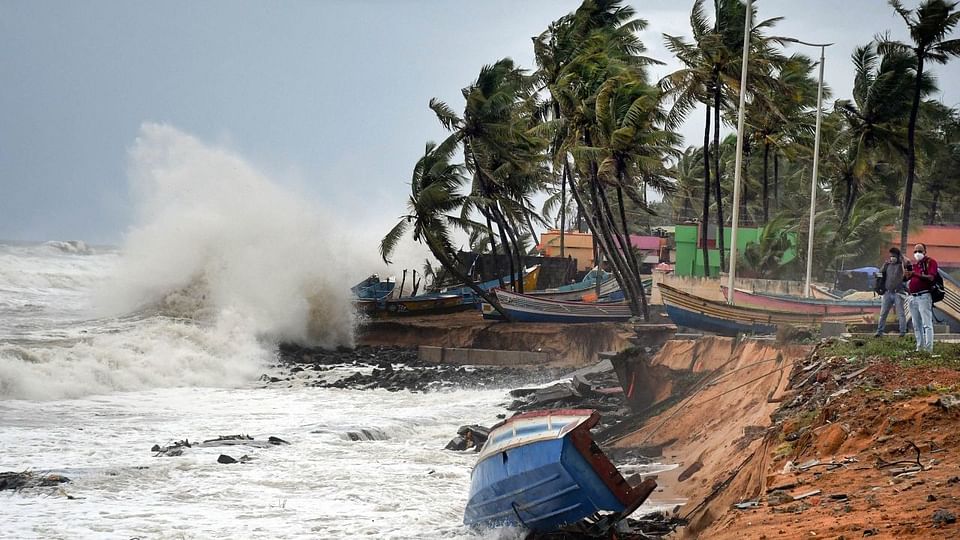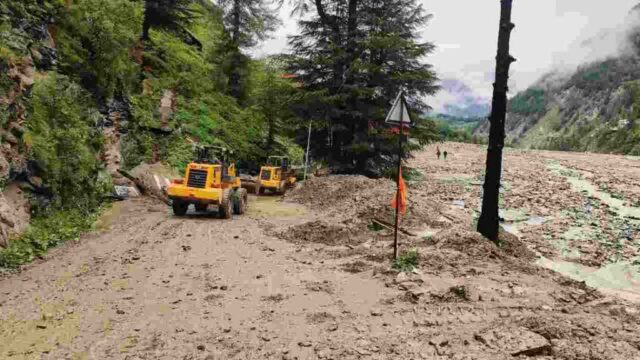Feel the crisis of climate change

A cyclonic storm called Tauktae, which rose in the Arabian Sea and caused havoc in Kerala, Karnataka, has caused great devastation in Maharashtra and now Diu. Hundreds of trees were uprooted by winds running at a speed of 185 kilometers, vehicles, humans and animals were buried under them. Thousands of homes were damaged. About 184–186 millimeters of rain disrupted life. Traffic was affected, air flights came to a standstill. Mumbai airport remained closed for eleven hours. Many COVID centers were also destroyed.
In fact, it is even more frightening than the Amfan storm in May last year, the Nisarg storm in June and the Preventive storm in November, which caused great devastation in Tamil Nadu. Scientists have called it a severe storm. According to meteorologists, the western disturbances and the high speed of strong winds have contributed to making it frightening, which has engulfed seven states.
Actually, climate change is such an unresolved puzzle that not only our country but the whole world is grappling with it. Considering the unforeseen events coming due to climate change and the changes in the ecology, there is a strong possibility that by the end of this century, the nature of the Earth will change to a great extent. Over exploitation of water, forest and land is responsible for this destruction. Rising temperatures have played an important role in this. If the global temperature continues to rise in the same way, then the world research studies have already warned that in the coming time, in the world, in 2005, the hurricane named Katrina in South America will cause terrible storms. Incidents like drought and floods will increase wildly. As far as storms are concerned, the rise in sea temperature naturally causes fierce storms as they carry the energy of the warm ocean. This causes heavy rainfall. Due to global warming, water vapour is created in the air.
If the increase in temperature continues at this pace, one-fourth of the earth will be transformed into a desert. There will be severe drought in the world. As a result, twenty-thirty percent of the world will suffer from drought. This will directly affect 150 crore people of the world. This will directly affect food grains, natural resources and drinking water. As a result, the life of man will be difficult. Due to this, areas with a large population will be emptied due to the problem of food grains, and the majority of the population will be forced to migrate to colder regions.
Considering the speed at which the land is going to lose its properties, the unproductive land will grow more than two and a half times. Due to this, 233 out of 630 districts of the country have been facing drought for many years. It means to say that the drought crisis in the country will increase further. Consequently, dependence on resources other than farming will be increased to feed the growing population. This will not only affect food grains, but will also have a huge adverse effect on the economy.
There is no doubt that in such a situation water crisis will increase.
Food production will decrease, the ice of the poles will melt, as a result many countries of the world will be submerged in water. The water level of the sea will increase rapidly and the cities and metropolises in the number of hundreds of seashores will be submerged, the species will end forever in more than two million.
Nutrients of foods that are the basis of life will be reduced. That is to say, their taste will be gone. The lack of vitamins found in foods is a living proof of this. The problem is that we are deliberately ignoring the danger in front of us, while we know very well what the consequences will be. Also, due to the effects of climate change, the raging form of weather has brought the whole world to the brink of destruction.
Actually, it cannot be denied that governments do not have any kind of thinking towards this. She does not want to make development the basis of environment. At present, this plight is the culmination of nature and the isolation of man. The conclusion is that unless the excessive exploitation of water, forest and land is curbed, then the challenges arising from climate change will continue to increase and in that case the struggle against climate change will remain incomplete.







